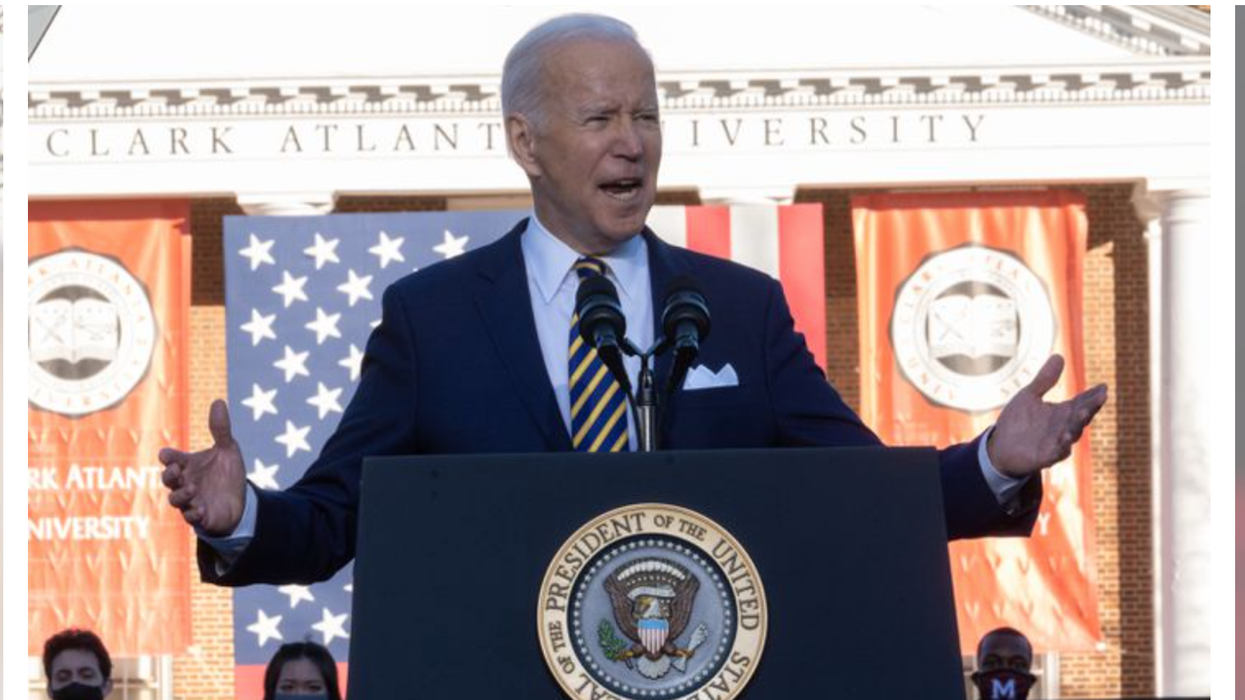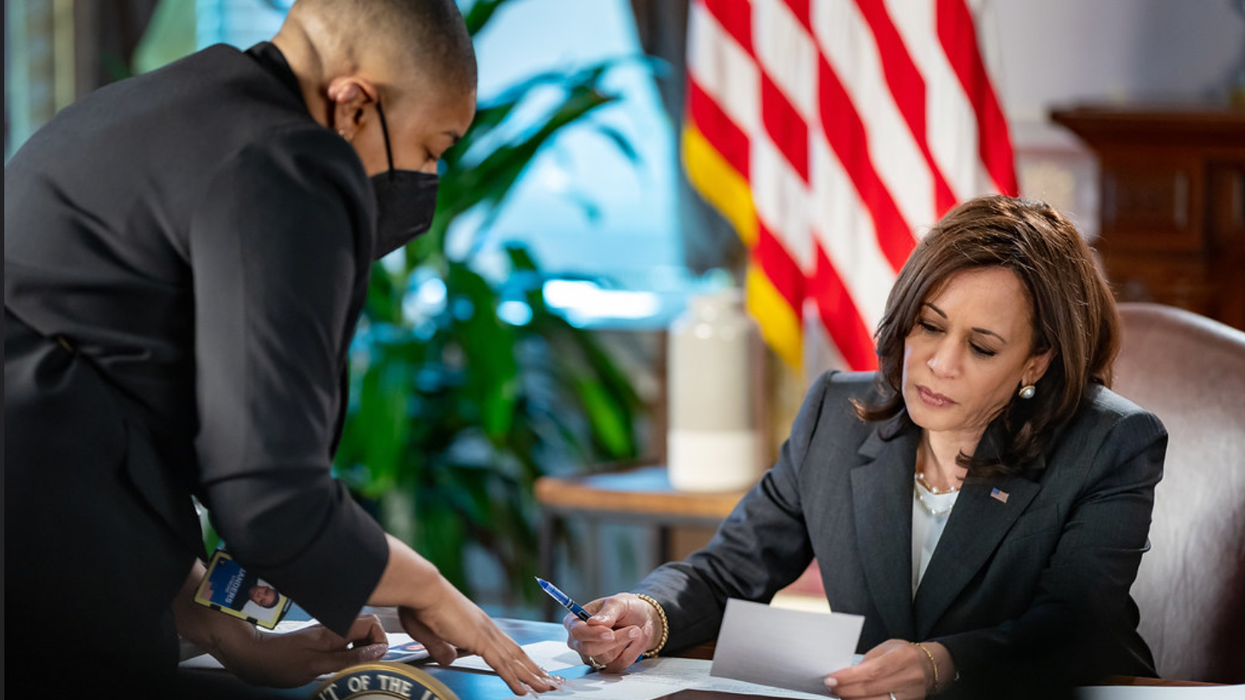Warning Against Autocracy, Biden Urges Senate To Drop Filibuster, Pass Voting Rights
This article was produced by Voting Booth, a project of the Independent Media Institute.
President Joe Biden implored the Senate to reject the filibuster rule and pass landmark voting rights legislation on Tuesday, saying that recent efforts by pro-Trump Republicans to suppress voters and subvert the popular vote were out of step with American history.
“The next few days, when these bills come to a vote, will make a turning point in this nation’s history,” Biden said, speaking at Atlanta University Center in Georgia. “The issue is will we choose democracy over autocracy? Light over shadow? Justice over injustice? I know where I stand… The question is where will the institution of the United States Senate stand?”
“There’s one thing every senator, every American should remember,” Biden continued. “History has never been kind to those who sided with voter suppression over voters’ rights… It will be less kind to those who side with election subversion. So I ask every elected official in America, how do you want to be remembered? The consequential moments in history present a choice.”
Biden’s Tuesday speech was his most forceful yet in support of passing sweeping new federal legislation that would fortify the right to vote after a decade where Republican-majority state legislatures and the U.S. Supreme Court’s Republican-appointed majority have acted in their respective spheres to roll back voting options and federal authority to defend voting.
There are two bills before the Senate. The Freedom to Vote Act, would, among its provisions, blunt state-led efforts to restrict mail-in or absentee voting—a widespread response to 2020’s most popular way that Democrats voted, make Election Day a holiday, and block redistricting that dilutes minority representation. The John Lewis Voting Rights Advancement Act would restore the Justice Department’s authority under the Voting Rights Act to overrule new laws or procedures that limit participation in jurisdictions with histories of electoral discrimination. The U.S. Supreme Court eviscerated the Justice Department’s enforcement powers in 2013.
The bills have repeatedly passed the House but have run into roadblocks in the Senate, where the Republicans have not even allowed debate to begin. Biden said that intransigence, as well as the filibuster rule, which requires 60 votes for a debate to proceed, have degraded the body’s character and held voting rights hostage to a power-hungry minority.
“The filibuster is not used by Senate Republicans to bring the Senate together but to pull it further apart,” Biden said. “The filibuster has been weaponized and abused. While the state legislative assault on voting rights is simple; all you need in your [state] house and senate is a pure majority [to pass bills.] In the United States Senate, it takes a supermajority, 60 votes, even to get a vote.”
“State legislators can pass anti-voting laws with simple majorities,” he continued. “If they can do that, then the United States Senate should be able to protect voting rights by a simple majority. Today, I’m making it clear, to protect our democracy I support changing the Senate rules—whichever way they need to change—to prevent a minority of senators from blocking action on voting rights.”
It is unclear whether Biden will be able to convince the foremost Democratic holdouts, Sens. Joe Manchin of West Virginia, and Krysten Sinema of Arizona, to carve out an exception in the Senate’s filibuster rules for voting rights legislation. The White House hopes to force the issue by next Monday, January 17, which is the federal holiday honoring civil rights icon Rev. Martin Luther King, Jr.
Earlier in his speech Biden said pro-Trump legislators, in statehouses and Congress, were bent on taking the country into an era where authoritarian rule would overshadow representative democracy. He explicitly accused the GOP’s Trump faction of resurrecting white supremacy.
“Jim Crow 2.0 is about two insidious things: voter suppression and election subversion,” Biden said. “It’s no longer about who gets to vote [the mid-20th century’s struggle centered around voter registration]. It’s about making it harder to vote. It’s about who gets to count the vote, and whether your vote counts at all.”
“It’s not hyperbole. This is a fact,” he continued. “Look, this matters to all of us. The goal of the former president and his allies is to disenfranchise anyone who votes against them; simple as that. The facts won’t matter. Your vote won’t matter. They’ll just decide what they want, and then do it. That’s the kind of power you see in totalitarian states, not in democracies.”










